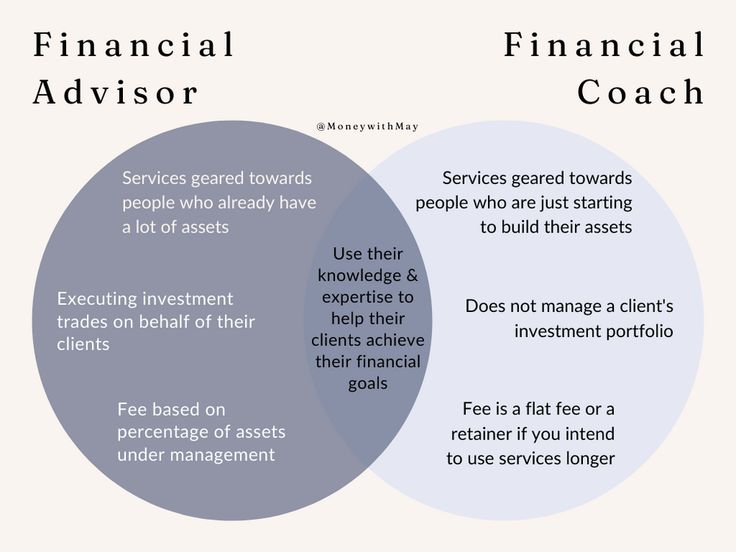
A boutique consulting firm might be an option for someone who is interested in a career. This type of firm is typically smaller and offers a more specialized service. Other advantages include higher salaries and a more entrepreneurial culture. Boutique firms can also provide an environment where employees are encouraged and supported to develop as professionals.
Smaller size
A boutique consultancy firm of smaller size may be a good option if you are looking for exceptional resources at reasonable prices. There are several advantages to working with these small firms. They can also be more affordable than larger companies. But smaller firms can have some disadvantages.
Although big companies can be great places to work, it is possible that boutique firms could be better for your career. They are more focused on industry knowledge and fit than size. Because they are smaller than multinational consultancies, boutique companies are less likely not to screen applicants and will hire "blank slates" candidates.
Services specialized
Many boutique consulting firms have a specialization in one field and only work with clients who are facing specific issues. They offer a wide range of services, including cloud migration, data management and advanced analytics powered through machine learning. These firms use agile methodology, which makes them more adaptable and responsive. They can react quickly to changes in the scope and scope of a project.

Boutique consulting firms specialize in specialized services to help enterprises solve unique business problems. To help companies solve their most pressing issues, they draw on the experience and expertise of their staff. Their expertise allows them the ability to help enterprise teams transform their businesses using technology. Boutique consulting firms can be invaluable partners for companies that need to act quickly.
Entrepreneurial culture
Boutique consulting firms are typically less than 200 people and specialize in highly customized services. They can often be considered a family of workers, people who share a passion and work together. Additionally, boutique consulting firms allow employees to work remotely when necessary.
A boutique consulting firm's culture is often more entrepreneurial than a traditional consulting firm. Entrepreneurial spirit can be seen in both the firm's culture and client service. This environment is conducive to innovative and creative consulting.
Higher salaries
The boutique consulting model has certain advantages over the traditional MBB. These smaller firms are more flexible than larger firms. These smaller firms are less strict about reviewing, so you can expect to work less and travel less each week. This means that boutique consulting firms can often be more flexible when it comes to compensation and benefits than larger ones.
The salaries of new employees at boutique consulting firms, for example, are much higher than those at larger firms. The average salary for a new graduate is between PS30,000 to PS42,000 in the first two-three years. In addition, you may also find additional financial benefits at boutique consulting companies.

A simplified process
Boutique consulting firms have the advantage of a smaller size and are more agile in their operations. Their senior staff has extensive expertise in the field. This means they can provide better advice and implementation support for their clients. They also have lower travel costs and more flexibility. This allows them to move quickly to the next project.
Boutique consulting firms focus on a specific area of expertise. They offer specialized information about specific issues and challenges, and work to improve the company of each client. Some boutique firms specialize in government or public sector work, while others specialize in a specific industry.
FAQ
What types of contracts exist for consultants?
Most consultants sign standard employment deals when they're hired. These agreements specify how long the consultant will be working for the client and what he/she will be paid.
Contracts may also include details about the specific areas of expertise that the consultant is going to be focusing on as well as how they will be compensated. The agreement might state that the consultant will conduct training sessions, workshops or webinars.
Other times, the consultant simply agrees to complete specific tasks within a specified timeframe.
Many consultants also sign independent contractor agreement in addition and standard employment agreements. These agreements allow the consultant work on his/her own but still receive compensation for his/her efforts.
What is a consultant and what are their responsibilities?
A consultant is someone who provides services for other people. It's not a job title. A consultant is a role that helps others achieve their goals. Helping others to understand their options, and then helping them make the best decisions.
Consultants are experts in finding solutions to the problems and challenges that arise while working on projects. They offer guidance and advice about how to implement such solutions.
Any questions you have about business, technology and finance, leadership or strategy, human resource management, customer service, customer service, or any other topic, a consultant can answer them.
What is the average time it takes to become a consultant
The length of time required varies depending on your background and industry. Most people start out with a few months before they find work.
However, some consultants spend several years honing their skills before finding work.
What can I expect from my consultant?
When you choose your consultant, they should respond within a few working days. They will often ask about your company's mission, goals and products. Then, they'll send over a proposal outlining the scope of work, estimated time frame, fees, deliverables, milestones, etc.
If everything goes as planned, then both parties will agree to a written contractual agreement. The type and content of the contract will vary depending on whether the relationship is employer-employee/employer-independent contractor.
If all goes well, the consultant will start working immediately. The consultant will have full access to your files and resources. You'll also have access to their skills and knowledge.
Don't assume that someone who is a consultant knows everything. It takes practice and hard work to become an expert in the field you are consulting. Your consultant should not assume that they know everything about you business.
What happens when the consultant finishes the job?
After the consultant completes their work, he/she will submit a final summary of the results. This report includes project timelines, deliverables, and any other pertinent information.
You will then review the report to determine if the consultant fulfilled your expectations. You can request modifications or terminate your contract if the report is not satisfactory.
Consulting is it a job?
Consulting is more than a job that allows you to quickly make money.
There are many options for consulting. These include project management, business strategy, strategy, leadership, and training. Projects could include small start-ups or large international corporations.
Consulting offers you the chance to improve and sharpen your skills as well as gain valuable experience across a range industries. This could include learning how to manage teams, write proposals, manage budgets and analyze data.
Statistics
- According to IBISWorld, revenues in the consulting industry will exceed $261 billion in 2020. (nerdwallet.com)
- "From there, I told them my rates were going up 25%, this is the new hourly rate, and every single one of them said 'done, fine.' (nerdwallet.com)
- Over 62% of consultants were dissatisfied with their former jobs before starting their consulting business. (consultingsuccess.com)
- WHY choose me: Why your ideal client should choose you (ex: 10 years of experience and 6-week program has helped over 20 clients boost their sales by an average of 33% in 6 months). (consultingsuccess.com)
- According to statistics from the ONS, the UK has around 300,000 consultants, of which around 63,000 professionals work as management consultants. (consultancy.uk)
External Links
How To
What's a typical day like for a Consultant?
Each type of work will dictate the day's pace. You'll spend your time researching new ideas and meeting clients.
You will often have meetings where you discuss issues and problems with clients. These meetings can be held over the telephone, online or face-to face.
It is possible that you will be asked to write proposals. These documents outline your ideas and plans, and are required by clients. You will need to discuss these proposals with a mentor or colleague before you present them to clients.
After all the preparation, you'll need to start creating content. You might be creating articles, videos, editing photos, writing interviews, or designing websites.
Based on the scope and complexity of the project you may need research to obtain relevant statistics. It may be necessary to know how many customers are currently using your products or services.
Once you have gathered enough information, it's time to present your findings to clients. You may give your findings orally or in written form.
After the initial consultation, it is important to follow up with clients. You can call clients to ask how they are doing or send emails asking for confirmation that your proposal was received.
This is a long process that can take some time. However, it is crucial to stay focused and to maintain good relationships.